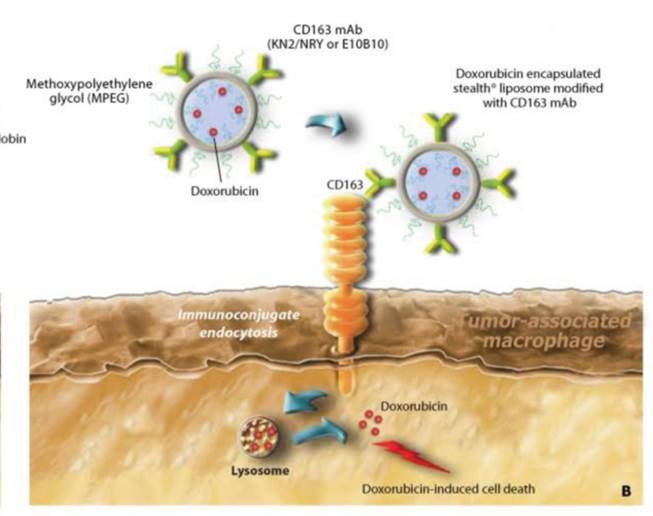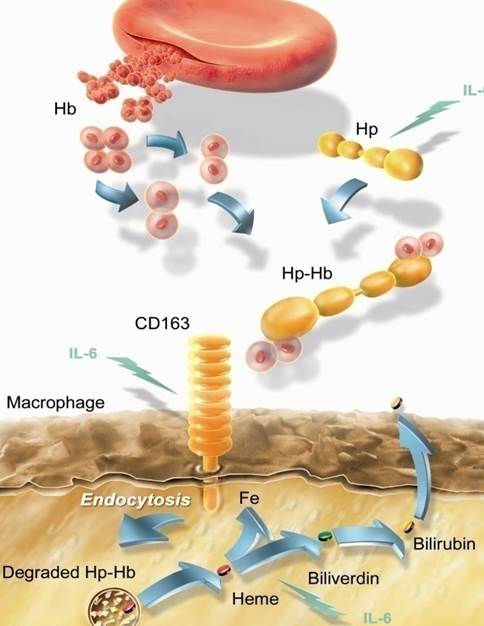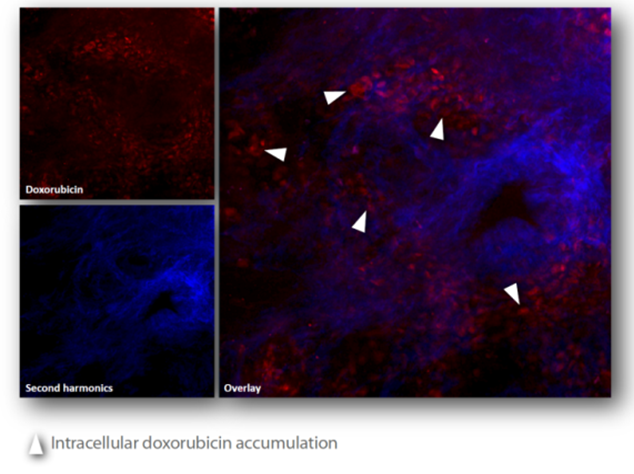|
|
Søren Kragh Moestrup Cancer and Inflammation Research Unit - Phone: +45 2899 2282 |
Research interests
The group led by Søren Moestrup investigates the role of macrophages receptors in inflammation such as the receptor CD163 that removes hemoglobin and haptoglobin from the circulation.
One focus is on characterizing the ligand binding of CD163, including identification of novel ligands. Another focus is on the development of techniques for specifically targeting small molecule drugs to macrophages, using monoclonal antibodies to make novel antibody-drug conjugates or targeted liposomes, both binding CD163. The macrophage plays a pivotal role in inflammation as the main producer of a range of pro-inflammatory cytokines, such as TNF and IL-1. By targeting glucocorticoids to the macrophages we can specifically inhibit the production of these pro-inflammatory cytokines, and we have shown that the efficacy of glucocorticoids is increased by a factor 50 through this specific targeting. The drug has been tested in inflammatory models in pigs, mice and rats. We are currently establishing other inflammatory models in order to characterize the role of the macrophage in other diseases and validate the specific targeting approach. In addition, a special subtype of the macrophage, the tumor associated macrophage, promotes the growth of tumors, and we are also working on targeting these cells. The work in the laboratory ranges from early receptor identification, recombinant expression and purification of proteins, over characterization of receptor binding, to in vitro and in vivo testing of drug candidates.
 |
 |
 |
Methods and Techniques
-
Protein purification and characterization (FPLC and HPLC)
-
Recombinant protein expression (eukaryotic and prokaryotic)
-
Receptor ligand interaction characterization
-
In vitro cellular assays

-
Inflammatory rodent models
Staff
-
Professor Søren Kragh Moestrup
-
Associate Professor Jonas Heilskov Graversen

-
Laboratory technician Malene Bille Jørgensen
-
Laboratory technician Signe Marie Andersen
- Targeting Dexamethasone to Macrophages in a Porcine Endotoxemic Model. Granfeldt A., Hvas C. L., Graversen J. H., Christensen P. A., Petersen M.D., Anton G., Svendsen P., Sølling C., Etzerodt A., Tønnesen E., Moestrup S. K. & Møller H. J..(2013) Critical Care Medicine, 41(11), e309-18
- Targeting the hemoglobin scavenger receptor CD163 in macrophages highly increases the anti-inflammatory potency of dexamethasone. Graversen, J. H., Svendsen, P., Dagnæs-Hansen, F., Dal, J., Anton, G., Etzerodt, A, Petersen, M. D., Christensen, P. A., Møller, H. J. & Moestrup, S. K. (2012) Molecular Therapy 20(8), 1550-1558
- Efficient intracellular drug-targeting of macrophages using stealth liposomes directed to the hemoglobin scavenger receptor CD163. Etzerodt A, Maniecki M.B., Graversen J. H., Møller H. J., Torchilin V.P. & Moestrup S. K. (2012) J. Control. Release 160(1), 72-80
- Comparative assessment of the recognition of domain-specific CD163 monoclonal antibodies in human monocytes explains wide discrepancy in reported levels of cellular surface CD163 expression. Maniecki, M. B., Etzerodt, A., Moestrup, S. K., Møller, H. J. & Graversen, J. H. (2011). (2011) Immunobiology 216(8), 882-890
- Identification of the hemoglobin scavenger receptor. Kristiansen, M.,Graversen, J. H., Jacobsen, C., Sonne, O., Hoffman, H., Law, A. S. K. & Moestrup, S. K. (2001). Nature 409(6817): 198-201.
Link to more publications:
